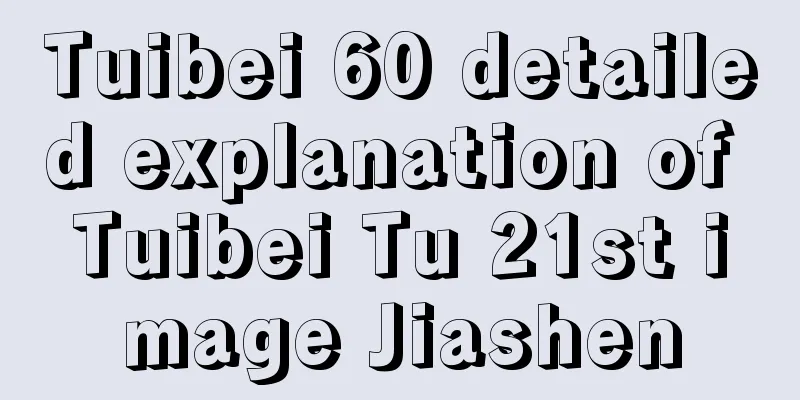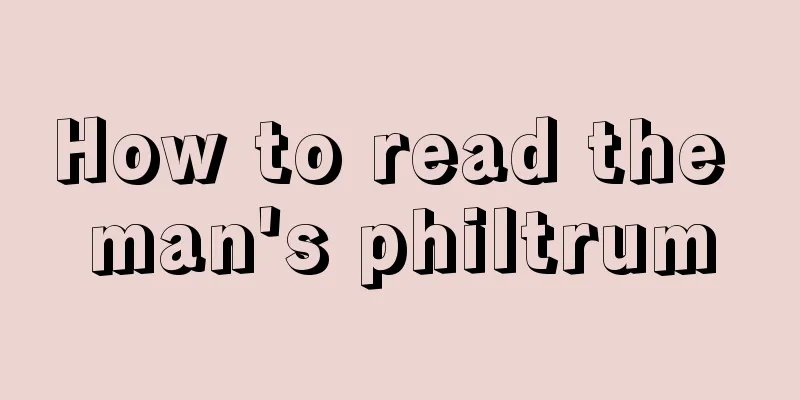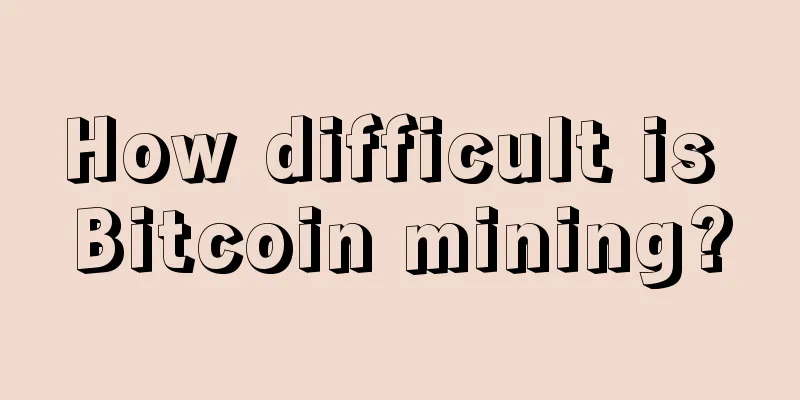Tuibei 60 detailed explanation of Tuibei Tu 21st image Jiashen

|
Curiosity about the future has always existed in every era. After all, if you can predict the future, you would be like a god. Since ancient times, there have been many works predicting the future. The Tuibei Tu we are going to talk about today is the most accurate book of prophecy. So, according to physiognomy, what period of history does the 21st image of Tuibei Tu, Jiashen, predict? Let’s take a look together! Tui Bei Tu original text: The 21st image is Jiashen 【Prophecy】 The snow in the empty palace is three feet deep Alas, the Yuan Dynasty's poems are all going in the opposite direction 【Song said】 The evil atmosphere has not been quelled, and peace will not come. A different surname established a dynasty and ended the throne. The 36th generation went south again. Detailed explanation of Tui Bei Tu in vernacular Chinese 1. Interpretation of prophecies [The snow is three feet deep in the empty palace]: It refers to the time after a heavy snowfall in midwinter when the Jin soldiers broke through Tokyo (now Kaifeng) and looted the entire palace. "厥": pronounced as jue, the meaning of the word is "其". If you are confused by the word splitting, "厥" means the palace gate is wide open, because "阙" (pronounced as que) refers to the palace gate, and "阙" has no door, so the word "厥" means the palace gate is wide open. The word "jue" is used in the 29th and 48th images of the Jin-pi version of "Tui Bei Tu", and it can also be interpreted as a double entendre in this way. Historical records (continued from the previous explanation): In the autumn of the first year of the Jing Kang reign of Emperor Qinzong of Song (1126), the Jin army once again marched south to attack the Song Dynasty with great force. On November 20th, the troops arrived at the gates of Tokyo. At this time, Li Gang, the famous prime minister who fought against the Jin Dynasty, had already been demoted by Qinzong. Qinzong tried to curry favor with the Jin Dynasty in exchange for peace, but he reaped what he sowed. "The snow is three feet deep": In early 1127, on the 25th day of the 11th lunar month, it snowed heavily again and was extremely cold. There was a red light stretching across the south of the city, its color like blood, which lasted until dawn. The Jin soldiers attacked fiercely and the city was broken. The Jin soldiers did not enter the city. Five days later, Qinzong came out of the city to surrender. On the fifth day of December, the Jin soldiers demanded the families of the governors of Hedong and Hebei as hostages and extorted tens of millions of gold, silver and silk. Qinzong did as he was told. Soon it snowed heavily again. In the first month of the year, Emperor Qinzong was again detained outside the city, and on the 25th it snowed heavily again... "The empty palace": In order to raise the money required by the Jin soldiers to extort, Emperor Qinzong emptied the treasury and sent people to search and plunder the entire city. He showed no mercy and "dug three feet underground". Even the gold and silver head ornaments were replaced, but it was still not enough. The Jin soldiers demanded 1,500 young girls. Since there were not enough civilian women, Qinzong used palace maids to fill the gap. Many women were forced to death. The Jin soldiers then kidnapped Huizong, Qinzong and their "3,000 wives and children, 4,000 men and women from the royal family, 5,000 nobles and women, 3,000 people of various colors, and 3,000 people from the music school", as well as a large number of jewelry, artifacts, ancient books, clothing, mules and horses... 【嗟嗟元“首首”】: "嗟嗟", (pronounced: xu jie), means to sigh. "Shou Shou": It is an ancient character that has been lost. Nowadays, the word “shou” is often used instead. The meaning of this ancient character is obvious: it refers to the two "heads of state", Emperor Qinzong and Emperor Huizong. 【Going in the opposite direction】 The phrase has a double meaning, referring to the two emperors being abducted to the north, and also lamenting that the two emperors did not get what they wanted: they kept humiliating themselves and begged for peace with the Jin Kingdom. After the Jin Kingdom attacked the Song Dynasty for the first time, Qinzong even exiled Li Gang, a famous minister who fought against the Jin Kingdom, for flattery; after the city was broken, they could not escape the bad fate even if they knelt down and offered tribute. In 1127, the two emperors were deposed as commoners and taken to the Jin Kingdom, and the Northern Song Dynasty was destroyed. 2. Explanation of the Song [There will be no peace until the evil spirits are quelled]: The riddle points out that the Song-Jin War took place during the "Jing Kang" period. [The war spread to the north and the imperial capital is in sight]: The northern Jin Dynasty swept across the Northern Song Dynasty, and the smoke of war spread to Dongjing (now Kaifeng) where the Song emperor was. [A person of a different surname came to power and ended the dynasty]: refers to the Jin Dynasty's conquest of the Northern Song Dynasty, in which a person of a different surname, Zhang Bangchang, was made emperor, marking the end of the Northern Song Dynasty. [卜世三六又去南]: refers to the Northern Song Dynasty, which had a total of nine emperors, after which the Song Dynasty moved south and established the Southern Song Dynasty. "卜": divination and fortune-telling. "Generations": This refers to the number of "generations" of emperors in the Northern Song Dynasty. "Three six": nine. 3. Interpretation The two people being taken away in the picture are obviously the two emperors of the Northern Song Dynasty. The people in the picture are dressed in Qing Dynasty official attire, which refers to the Jin people. This kind of clothing metaphor has appeared three times before. Please see the analysis of the 7th image for details. 【Wen Zheng's Interpretation of the Hexagram】 The hexagram is "Sun", the lower part is Dui, which refers to the marsh; the upper part is Gen, which refers to the mountain. The "Sun" hexagram represents "high mountains and deep waters, and repaying grievances with virtue", "a symbol of struggle, things going wrong, and loss of money", and is "not good for women". All of the above are consistent with this phenomenon. "The mountains are high and the waters are deep": It refers to the royal family being kidnapped to the Jin Kingdom and imprisoned in Wuguo City (today's north of Yilan County, Heilongjiang Province), with mountains high and waters long along the way. "Repaying evil with kindness and suffering loss and ruin" is a satire on the Northern Song Dynasty's blind offer of tribute and peace to the invaders. "Not good for women": During the Jingkang Incident, countless women in the capital were tortured, and thousands of concubines, palace maids, and female relatives of the royal family were abducted, with a few being humiliated and killed along the way. When they arrived at Shangjing of the Jin Dynasty (now Baichengzi, Acheng, Heilongjiang), except for Emperor Qinzong's Empress Zhu who committed suicide, only seven of Huizong's concubines stayed with him. Qinzong was finally reunited with his three concubines. The rest of the imperial concubines, princesses, royal consorts, and female relatives, more than 300 in number, were sent to the "laundry house" - an official brothel. Most of them were distributed to various camps or even sold. Zhao Gou's mother, Concubine Wei (the concubine of Emperor Huizong), his wife, Concubine Xing, his concubines, and even his two young daughters were all sent to the "laundry house". Concubine Wei and Concubine Xing became the main targets, and Zhao Gou's wives and concubines were all abused to death - to humiliate Zhao Gou and discredit the Central Plains - in the ancient times of loyalty to the monarch, this kind of insult to the monarch was a great shame for all the subjects! The disaster of the fall of the country in Jingkang was a great shame that the people of the Song Dynasty could not reconcile! However, Zhao Gou did not regard this as a humiliation! No wonder the next image of "Tui Bei Tu" praised him as "Da Lai"! What does the 21st image tell us about: The Humiliation of Jingkang The two people in the front of the picture are wearing imperial robes, and there is a golden man behind them, which is a metaphor for the situation of Song Huizong and Song Qinzong being captured and taken north. The prophecy was: "In the empty palace, the snow is three feet deep. Alas, leader, you are going in the wrong direction." It meant that the capital of the Song Dynasty was captured and the palace was looted. The emperor, who was supposed to live in the palace, was now being taken to the north in the opposite direction. The eulogy is: "There will be no peace until the evil spirit is cleared, and the war smoke is swept away in the north to look towards the imperial capital. A dynasty is established in a foreign country and the throne is finally established. After three or six generations, it will go south again." The first two sentences talk about the treacherous minister Cai Jing and his sons who made the Northern Song Dynasty restless and finally the capital was broken into by the Jin people. The last two sentences talk about how the Jin people supported Zhang Bangchang to establish the Chu Kingdom in the north, which perished sixteen years after the Northern Song Dynasty. "Going South" refers to the establishment of the Southern Song Dynasty. This sign predicted that at the end of the Northern Song Dynasty, the Jin Dynasty established by the Jurchens would invade the Song Dynasty and capture Kaifeng in the first year of the Jing Kang period. Emperor Huizong and Emperor Qinzong would be taken abducted to the north. In the picture, there are two people dressed as court officials walking away from each other, which refers to the two emperors Huizong and Qinzong who were captured and taken north. "There will be no peace until the evil atmosphere is quelled" indicates that the incident happened during the Jingkang period. Jin established Zhang Bangchang as emperor, which was "a dynasty with a different surname ended the reign". "The thirty-sixth generation will move south" refers to the fact that the Northern Song Dynasty had nine emperors, and then it would move south. The Southern Song Dynasty established its capital in Lin'an (now Hangzhou). The above is the sharing about the detailed interpretation of Tuibei Tu 60, the 21st image Jiashen. For more physiognomy information, please follow the Dream Interpreter website! |
<<: Too enthusiastic. These people act like old friends to everyone.
>>: Tuibei 60 detailed explanation Tuibeitu 20th image Guiwei
Recommend
I am very timid but I like to see the faces of supernatural events.
In fact, many people have this feeling. Sometimes...
People with gums showing when smiling are not loyal in love
Different facial features give people different f...
How to read the marriage line in palmistry
We all know that the marriage line determines whe...
Is it a good thing to have a mole on the left side of your belly button? It may cause a divorce!
Is it good to have a mole on the left side of the...
Is it good for a woman to have a mole in the middle of her right foot? What does it mean?
Moles can always be seen in daily life because ev...
Analysis of the face of a foxy woman
Physiognomy is one of the traditional physiognomy,...
Is it good for the marriage line to be on the side of the palm? Can the marriage line tell whether you will marry early or late?
Everyone dreams of having a happy and sweet marri...
Rich people's facial features Rich people's facial features
Everyone envies rich people and wants to become r...
Grayscale's recruitment action has attracted attention from the cryptocurrency circle: Is the first Bitcoin ETF in the United States coming soon?
Cailian Press (Shanghai editor Liu Rui) reported:...
Bitcoin reserves in China and the US exposed
Since January 10, when the US SEC approved 11 Bit...
What kind of body shape women have good luck
What kind of body shape women have good luck Ther...
How to read the palmistry of celebrities
Palmistry can predict our fortune in this life, a...
Gold, stock market and big cake are all soaring, and the US M2 money supply is approaching a new high: Is the bull market really coming?
Financial markets hit new highs, with the S&P...
The facial features that will definitely make you rich in fortune telling
In physiognomy, if a person has relatively thick ...
What does the incoming Biden administration mean for Bitcoin?
By Andrew Hayward & Stephen Graves Compiled b...









